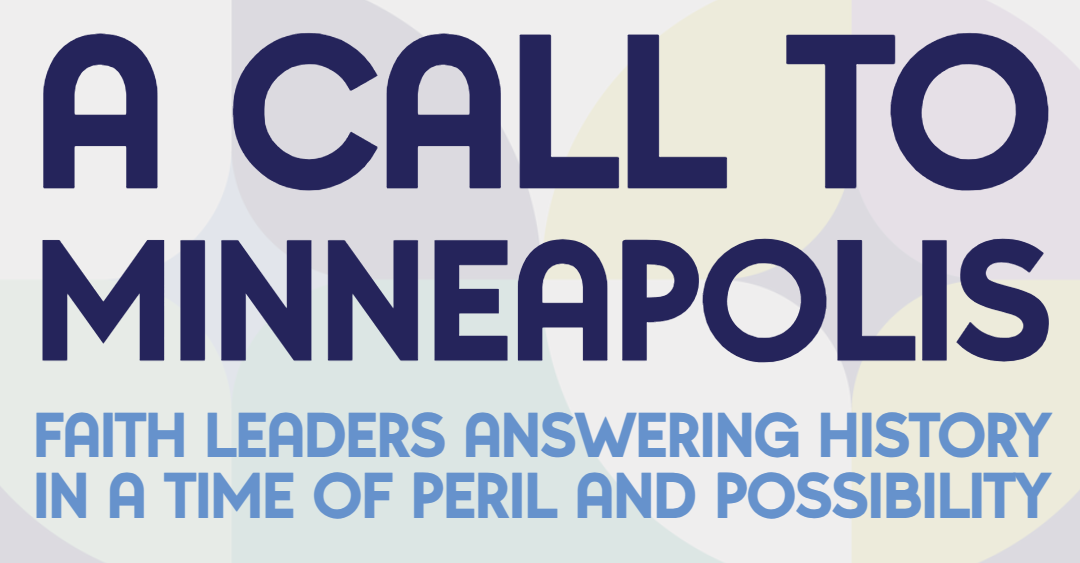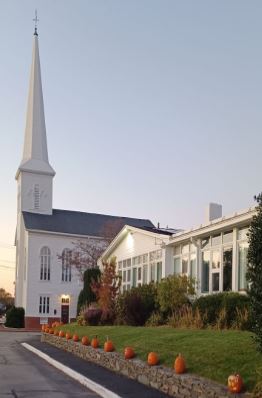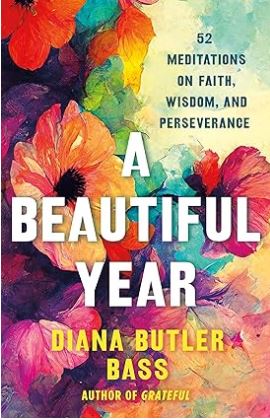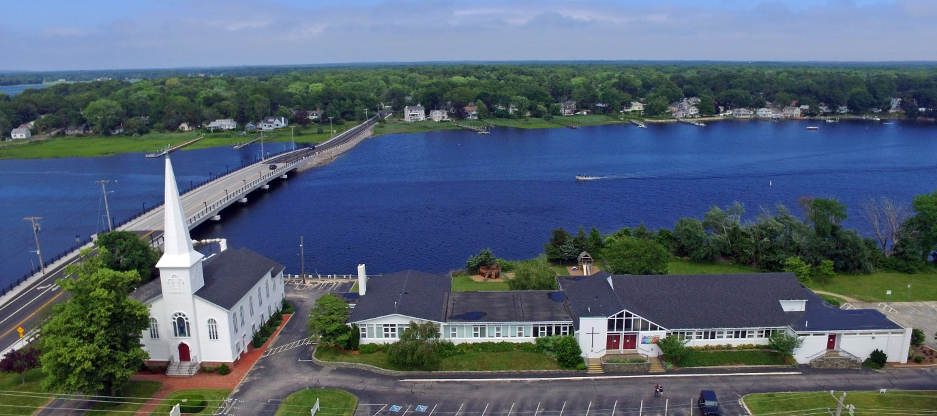Pastor’s Word

A Beautiful Lent
By Rev. Joe Zarro, Interim Senior Minister
It is a season of fasting right now – not only did Lent begin yesterday with Ash Wednesday, it’s also the beginning of Ramadan when more than 1 billion Muslims observe the yearly fast (based on a lunar calendar). Traditionally, folks give up “sweets and meats” for Lent, but in both Catholic and Protestant churches the traditions have been changing through the centuries. These days it’s common to pick something to “give up” and/or something to “take up.”
Personally, I like to do both – I pick something common enough to be a daily reminder of my commitment, and something enjoyable or treasured enough to be “sacrificial.” Some years it’s alcohol, some years it’s social media. This year is going back to some of my teenage habits that have stayed with me – soda and video games. I also like to take up things I see as a spiritual practice, whether it’s devotional reading or time outside. This year it is music – practicing it daily.
I hope you have thought about Lenten commitments yourself, and it’s still early enough in the season to pick something now, even if it’s something you’ve done since Lent. The idea is to pick something that is both a reminder and a small sacrifice, or something that helps you grow spiritually.
One opportunity at BCCUCC is our Lenten Book Group that will continue exploring devotionals by Diana Bass Butler in her book “A Beautiful Year.” We’ll be meeting Thursdays at 7 p.m. beginning Feb. 26 and ending March 26 at this link. The book is a resource for devotional reading during Lent, and the weekly gathering is a chance to enrich your Lenten journey with discussion and connection with others in the church. I already have a small group registered for this, and we would love for others to join us.
Please let me know if you would like attend, and whether or not you observe Lent, I hope this is a season that deepens your faith. The two largest religions in the world are in an intentional season of reflection and spiritual purification – something that doesn’t always happen (Ramadan and Lent are on lunar and solar calendars respectively and rarely line up like this). May it be a season of strengthened faith for you as well.
Yours in Christ,
Rev. Joe
_____________________________________________________________________________________________________________________________________
“A Beautiful Year” Lenten Book Group (Online)
2026 is off to a rough start, but we have observing a new liturgical year since, Nov. 30, the first Sunday of Advent. And the liturgical year tells a beautiful story, and we are about to head into one of its most distinctive seasons: Lent. Lent is the 46 days leading up to Easter – if you don’t count Sundays, it is 40 days mirroring the 40 days Jesus was tried in the desert.
It is a time of fasting, reflection and devotion. I would like to encourage you to join us for a weekly devotional book group based on Diana Bass Butler’s “A Beautiful Year,” her new book
which is reflections on the liturgical seasons. We had a great Advent group with the same book, and now we will read from Lent. However, each “season” is self-contained and it will be easy to jump in with us.
We will gather via Zoom from 7-8 p.m. on the following Thursdays: Feb. 26, March 5, March 12. March 19 and March 26. April 2 is Maundy Thursday and we encourage you to attend the Tenebrae service. On Feb. 26 we will discuss the Lenten Introduction, the Ash Wednesday readings, and any Lenten commitments we may have made. Please RSVP to Joe@bccucc.org. We will also be inviting others from UCC churches such as Newman Church UCC, who joined us last time. If needed, we can use breakout rooms to ensure quality discussion. We have 2 more copies of the book in the church office or you can buy them online or from book stores. If you RSVP you will receive a link to our meetings and a weekly recap/reminder.
*Blog photo by Brett Sayles: https://www.pexels.com/photo/silhouette-of-cross-1343325/

Violence or Vote
By Rev. Racquel R. Ray
Watching. Waves of worry wash over us.
That will never happen here…Right??
Lurking, lingering… Stirring, recalling… hasn’t history seen this before?
Why does this look familiar?
Why does it look new?
Brown bodies know, they carry the violent history in their DNA.
Indigenous bodies know.
Jewish bodies know.
Veterans bodies know.
There was a day when white bodies weren’t harmed.
Women’s bodies know.
Violence is not new.
Until now.
Now, white men are mad. One of their own.
Now is the time to act.
This is the same violence that landed on these shores.
The city on the hill held violence.
Gunpowder and musket.
Oppression. Othering.
Evangelizing. Enslaving. Emancipating.
Integrating. Investing. Profiting.
The American Experiment.
Control the capitol, commodify the capital.
At all costs.
Where is the outrage?
Where is the voice of moral clarity? Where is the prophet?
This is oppression. Control through violence.
Be worried as waves wash. As we watch.
Be Angry.
Then, act, react, resist.
Move, mobilize, meet.
Stand, support, speak out.
Vote.

Minneapolis MARCH
By Rev. Joe Zarro, Interim Sr. Minister
In worship the past 2 weeks, I’ve been asking for prayers for a dear friend of mine, Rev. Susan Hayward. Susie and I met at Harvard Divinity School, and not only did she invite me to parties and trips, she also invited me to church – First Church Somerville became the church I regularly attended then served as student minister thanks to that invitation. We have stayed in touch for the past 17 years. Initially, she worked in Washington DC at the US Institute of Peace doing religious peacemaking in places like Sri Lanka as an ordained minister in the United Church of Christ. A couple of years ago she returned to Minneapolis to serve Creekside UCC (formerly Mayflower – they changed their name because of the colonial implications). She’s been active in interfaith work, racial justice, and human rights ever since I’ve known her. One way she’s served is on the board of Multifaith Antiracism, Change and Healing (MARCH), an inclusive, interfaith and clergy-led group with about 30 years of history.
MARCH recently put out a call to clergy to join them in witness and action in Minneapolis for today and tomorrow. The response was overwhelming and nationwide, so much so that they had to pause new registrations from a capacity and safety perspective. I know colleagues going from coast to coast, flying or carpooling, knowing full well the forecast is below zero. Those of us who can’t go are often donating to those who can. My clergy network is that committed to standing up for their immigrant neighbors and resisting the abuses of ICE, which go far beyond the murder of Renee Good.
I personally find this inspiring and righteous. If you agree with me, I want you to take comfort knowing that so many faithful leaders are answering the call to justice, and willing to resist this country’s descent. If you disagree with me, that’s OK, but please think deeply about why so many pastors, local leaders, peacemakers, and human rights experts are horrified about what is happening and how you might open your mind to our message. If you want to reach out to me, I promise to listen to you with sincerity.
But I hope everyone reading this will join me in prayers for my colleagues in Minneapolis today and tomorrow. They are there according to their conscience and deep conviction, and I regret that I am not with them. Pray for their safety, for their courage and faith, and above all, to give this nation the ears to hear the peacemakers crying out to all who will listen.
Yours in Christ,
Rev. Joe Zarro
*Image Credit (and more information about MARCH) available at: https://www.marchminnesota.org/

The Church is an Anchor in the Community
By Rev. Racquel R. Ray, MDiv
Associate Minister of Congregational Life
As the new year breaks open but has yet to reveal her secrets, we wait with darkness for dawn to enlighten our days. We reflect on the past year and are surprised at our ‘year in review’ posts, photos, and calendars. We did so much! And yet, the new year is a blank canvas; open for new possibilities and new blessings.
As I reflect on last year, I’m still thinking about a strange encounter I had at the local bakery on my street. On one Sunday morning, I was wearing my clergy collar and typical church suit, and stopped in to buy several loaves of bread to share with visitors to the church. I was going to preach on the value of hospitality and the importance of radical welcome in our congregation. A neighbor approached me in the bakery, noticed my collar and asked, “What church are you from?”. I answered and their response was, “Oh! That’s MY church. I’m a member there.”
In my four years with the church, I have never met this person. I was delighted to meet a new (to me) member. And, I was wondering how this person considered themselves to be a member of the church but not a person who regularly attends. And, I wondered how many residents of the town consider the church where I serve to be “their church” whether or not they attend. 
Last semester, I took a class wherein ministers were asked to deeply research their ministry context. We were asked to take photos of the inside and outside, video recordings, audio recordings, research the history of the land, and research the history of the buildings. We were asked to describe the congregation’s demographics, passions and ministries, gifts and talents, and the mission of the church. We were asked to identify challenges in our ministry settings and think through solutions to those challenges. Over the course of the fourteen weeks, I thought often of the church and the membership and of the ‘stranger’ who I met in the bakery.
I believe that because the church is a historic, geographic, social, spiritual, civic, and even political landmark in the town, many residents consider the church “their church” or “the town church”. It is true that when describing the town to others who are familiar with the state, people often recall the big white historic church at the first crossroads in town. Many generations have come through our doors not only for worship but also for the role we play in the community: Boy Scouts, Girl Scouts, Gardening Club, protests, prayer vigils, and Interfaith gatherings. The welfare of our church matters – not only to the people who regularly attend Sunday worship but also to those in town who consider it “their church”.
 I’m reminded of the scripture from Jeremiah, “But seek the welfare of the city where I have sent you into exile, and pray to the Lord on its behalf, for in its welfare you will find your welfare.” This scripture is from Jeremiah 29 and contains the words of a letter that Jeremiah sent from Jerusalem to the exiles in Babylon. Many of us recall the instructions that precede this plea for the city, “Thus says the Lord of hosts, the God of Israel, to all the exiles whom I have sent into exile from Jerusalem to Babylon: Build houses and live in them; plant gardens and eat what they produce. Take wives and have sons and daughters; take wives for your sons, and give your daughters in marriage, that they may bear sons and daughters; multiply there, and do not decrease.”
I’m reminded of the scripture from Jeremiah, “But seek the welfare of the city where I have sent you into exile, and pray to the Lord on its behalf, for in its welfare you will find your welfare.” This scripture is from Jeremiah 29 and contains the words of a letter that Jeremiah sent from Jerusalem to the exiles in Babylon. Many of us recall the instructions that precede this plea for the city, “Thus says the Lord of hosts, the God of Israel, to all the exiles whom I have sent into exile from Jerusalem to Babylon: Build houses and live in them; plant gardens and eat what they produce. Take wives and have sons and daughters; take wives for your sons, and give your daughters in marriage, that they may bear sons and daughters; multiply there, and do not decrease.”
Many of us have done just that. We settled in this town and raised our families with a sense of divine blessing and communal purpose. We built or bought houses, planted gardens, and watched as our children grew, married, and had their own children. The community is filled with others doing the same. And, we’ve prospered as a result. And, so has the church.
As we live into the new year, I pray that I get to meet everyone who sees the church where I serve as “their church”. I pray that the people who regularly attend on Sunday mornings invite their neighbors to their church. I pray that we value and appreciate the place that “our church” has in the community and we find innovative ways to support the church and insure its prosperity for many more generations to come. I pray for the welfare of the city and all of our neighbors. I pray that “our church” continues to be a landmark, a beacon, and an anchor for the community.

Blue Christmas

Happy New Year!
By Rev. Joe Zarro, Interim Senior Minister
It’s not even Thanksgiving yet, but I’m wishing you a “Happy New Year” because this Sunday marks the beginning of a new Christian liturgical year. Advent has many meanings, and one of them is “beginning.” It is the beginning of our sacred calendar, and it’s also the beginning of a lot of exciting Advent and Christmas themed activities. Check out the bridge for the many opportunities – from Caroling to Cookie Swaps and festive Christmas Eve Services.
But for those looking for a place to slow down, reflect, and read in all the holiday hustle (and beyond) I’m offering an opportunity to share a book together and join in conversation. The book is “A Beautiful Year” by Diana Bass Butler (a respected scholar of religion and author). I will have hard copies available at worship on Sunday, and it is easily found online or “wherever books are sold.” Whether you are able to come to discussion group or not, I think it’s a valuable devotional practice to have this book, which follows the liturgical year with reflections for every season.
If you would like to join us for discussion, I have a budding group of people interested or signed up for online discussion, including Rev. Sam Lovett, the pastor of Newman Church in East Providence. We will be meeting at 7 p.m. on Thursdays, Dec. 4, 11 and 18 via Zoom for about an hour. The link will be shared with participants by email, so please do RSVP to Rev. Joe at joe@bccucc.org. On Dec. 4 we will discuss the Introduction to the book, the introduction to Advent, and the first devotional “Wrinkly Time” (only 18 pages total).
Again, you don’t have to attend on Thursdays to read the book with us – I’m happy to get coffee or talk on the phone, or you can read on your own and deepen your understanding and connection to the liturgical year. Most UCC churches follow the big points of the year – Advent, Lent, Easter, Pentecost – but there’s so much to it, and it can be such a sacred rhythm. Butler Bass wrote something that engages the present moment, and our current social context, but in a way that is devotional, optimistic, pastoral and loving. I hope you will join us in reading!

It’s Relational, Not Transactional
By Interim Sr. Minister Rev. Joe Zarro
“The point is this: the one who sows sparingly will also reap sparingly, and the one who sows bountifully will also reap bountifully. Each of you must give as you have made up your mind, not regretfully or under compulsion, for God loves a cheerful giver.” – 2 Corinthians 9:6-7
I have a special disdain for prosperity gospel preachers, the kind that tell you that if you give the church “seed money” you will be rewarded with blessings, and God will pay you back dollar for dollar and then some. A bunch of grifters and conmen, who live lives of luxury bragging that it is God’s blessing to do so. It’s a special kind of heresy and theft from the people of God that gets under my skin. But like all good conmen, they start with a kernel of truth – that giving to others, giving to your church, and in general being generous truly enriches your life. The problem is that they take a spiritual truth – it is in giving that we receive – and make it a financial transaction. God is not transactional – you don’t get immediately rewarded for good behavior and Lord knows evil goes unpunished for far too long.
But Paul is not a prosperity grifter in this famous scripture. He’s not saying God will make you rich if you give to the church in Jerusalem. He’s saying that when you practice generosity, you are building up a life of spiritual abundance and blessing. If you are generous, you get to live a generous life, and work toward a generous world. And that’s far more valuable than the money you give away. But he’s also clear that it must be freely given and according to your heart – it doesn’t work if it’s under compulsion and obligation. The benefits are spiritual, so the spirit of giving is important.
Never forget that Jesus gathered his disciples and told them that the widow putting two small coins in the Temple Treasury gave more than all the rich men giving for show. She gave all she had, she did it out of love, and did it when she thought nobody was looking. The quality of the gift is more important than the quantity.
And it’s relational, not transactional. This Sunday, on Consecration Sunday, you can pledge more than ever to the church. You could stretch yourself to support the church in this time of transition – then go on to have the worst year of your life. You could skip this year and win the lottery. It’s not 1-1. But there is a relationship between your giving and your heart, your relationship to God, and your relationship to the church. God doesn’t pay you back dollar for dollar, or good deed for good deed. But you get something better than money and divine favors. You get true blessings – peace of mind, a mindset of abundance, love in your heart, happiness not dependent on the seasons of this life.
So this Consecration Sunday I hope you “make up your mind” in love and cheer, not guilt and compulsion, and give generously to our church during this time of transition. I won’t promise you immediate rewards (beyond just feeling good about it), but I will echo the encouragement of Paul that through generosity you are sowing bountifully for your soul.
Yours in Christ,
Rev. Joe

One Team, What Goal?
By Rev. Joe Zarro, Interim Senior Minister
On October 19, I kicked off our Stewardship Season with a sermon on Teamwork – how we are all part of the body of Christ, that we have different gifts and abilities, and it’s only when we come together, and practice our faith in community, that we are whole (1 Corinthians 12). I need this church – not only as a pastor dependent on the church for my livelihood – but as a Christian who cannot practice his faith alone. You don’t have to be a member of a church to be a “true” Christian, but you do need to be part of a community – you must serve others and rely on the gifts and grace of others as well. You need a team.
But what about the goal? Teamwork is a great metaphor, but in Christianity there is no “winning.” We may try to give ourselves a scorecard – worship attendance, church school registrations, number of baptisms, size of the budget – but these are our way of counting success, not God’s. The Great Commandment is to love God and love your neighbor, and love is not a competition.
But we do have a “goal.” We have a shared vision and purpose: Faithfulness. Faithfulness is not easily defined, Our mission statement is one articulation of what faithfulness together looks like. The mission statement says, “The Barrington Congregational Church, United Church of Christ, is a Christian community that worships God, embraces all people, ministers to one another, works for justice and peace, and renders loving service to God’s world.” This shared vision of worship, inclusion, service and social justice is the goal our team seeks to achieve.
I want you to consider the part you play in this goal, and what faithfulness looks like for you, especially as a part of a larger team. Our stewardship season is about more than asking for money and volunteers. It’s about coming together as one team for that one goal of faithfulness to God.
Yours in Christ,
Rev. Joe

Teamwork: Get into the Game
By Rev. Joe Zarro, Interim Senior Minister
In this year’s Stewardship Campaign, we are going to celebrate the best aspect of team sports: community and shared purpose. Our theme “One Team, One Goal” highlights both our unity and diversity, how we are all have different parts to play but are one team working toward the same goal: faithfulness to God. We all want what is best for our church, our communities, our world. We know it’s God’s will to love and serve our neighbors, to do justice and love mercy. And we believe God has called all of us to work together to bring about this positive change.
Teamwork is the foundation of the Christian church. The Apostle Paul, writing to one of the earliest churches, used the metaphor of the human body – just as the body is many parts but one body, we are diverse in our gifts and abilities, but one church united in Christ (1 Corinthians 12). In the metaphor of the team, we may play different positions, we may have different strengths and weaknesses, but we are all on the same team. The quarterback cannot say to the offensive line, “I don’t need you” unless he wants to get sacked. And every good pitcher needs a good catcher, not to mention fielders to make their plays and an offense to provide some run support. Nobody wins on their own, and win or lose, we do it together.
Now, I’m new to this team, a mid-season transfer of sorts. I’m also only with you for a season or two, on a short-term contract. But I’m already deeply committed to the life and success of “Team BCCUCC” and want to see us thrive while I’m here and long after I’m gone. That’s the other important thing about teams – they may rely on a group of players for a season or an era, but the team endures long after the players have left the field.
Whether you are an All-Star franchise player of this church, a total rookie, or something in between, this stewardship campaign is going to encourage you to “get into the game.” We want to hear your goals and dreams for the church, we want to know how you plan to contribute your time, talent and treasure to our shared goal. I hope you’ll worship with us during our stewardship season, I hope you will sign up to be on (or continue to be on) one of our many ministry teams, I hope you submit a pledge for the coming budget and our shared expenses. Above all, I hope you find a way to connect and feel part of this team. Because we are all in this together. We need each other, and everyone has a part to play.
Yours in Christ,
Rev. Joe

An Essay of Our History
An essay by Rev. Racquel Ray submitted for Doctor of Ministry work at Boston University, September 2025
The land upon which the [Barrington Congregational Church] church is built has a long and poetic history. “As the first leaves of sassafras and strawberry emerged in the Wampanoag country during the spring of 1623, a leader stepped forth to confront Plymouth colonist Edward Winslow…all were preoccupied with the illness that had overcome a beloved man, Ousamequin, or Massasoit (his title) – a “great sachem” of the Wampanoags and leader of the adjacent region of Pokanoket.” (Brooks 2018, 1). Barrington Congregational Church, UCC sits on the land of the Pokanoket. The two leaders had developed a strong bond which prompted Winslow to visit Osamequin on his deathbed, “There (Mattapuyst) they told us, That MASSASSOWAT was dead.” ( (Bangs 2004, 70) However, learning that the Indigenous leader was alive, Winslow “set forth with all speed” and came thither to {i.e. to Sowams], (Bangs 2004, 71) having arrived to a house full of elders “making such a hellish noise, as it distempered us that were well” (Bangs 2004, 71).
In an intimate sojourn of compassion Winslow nursed Osamequin to health, “When I came to him…he put forth his hand to me, which I took and he said, “Matta neen wonckanet namen, WINSOW?, that is to say, “O WINSLOW, I shall never see thee again.” (Bangs 2004, 71). Winslow then nursed his friend back to health slowly by feeding the Massasoit with small sips of “a confection [preparation] of many comfortable conserves on the point of my knife.” (Bangs 2004, 71) and progressing to broths made from sassafras and strawberry, and pottages (Bangs 2004, 71) bolstering Massasoit’s health and good will toward the Plymouth colonists. (Rhode Island Historical Preservation Commission and Barrington Preservation Society 1993, 7). Upon recovery, Osamequin broke forth into praises for his renewed bond, “Now I see that the English are my friends, and love me: and whilst I live, I will never forget this kindness they have shewed me” (Bangs 2004, 74). Thus the humane acts of Winslow…in saving, by providential aid, the life of Massasoit…which preserved the infant colony from complete extermination. (Bicknell 1898, 55)
 However, the two men’s sons Pometacomet (Metacom) or Philip and Josiah Winslow forged an unresolved conflict over the terminology and understandings of their fathers’ land inheritances and grants. (Brooks 2018, 40-41) resulting in “King Philip’s War”. (Brooks 2018, 4) The first settlers at Plymouth were granted three large tracts of land for themselves and their associates…one at Patuxet or Plymouth, another at Kennebec, Maine, and the third at Pokanoket or Sowamset. (Bicknell 1898, 58)
However, the two men’s sons Pometacomet (Metacom) or Philip and Josiah Winslow forged an unresolved conflict over the terminology and understandings of their fathers’ land inheritances and grants. (Brooks 2018, 40-41) resulting in “King Philip’s War”. (Brooks 2018, 4) The first settlers at Plymouth were granted three large tracts of land for themselves and their associates…one at Patuxet or Plymouth, another at Kennebec, Maine, and the third at Pokanoket or Sowamset. (Bicknell 1898, 58)
The land underneath the feet of the warring sons is called Sowans and is the native land of the Pokanoket people “whose lands and waterways we benefit from today.” (Barrington Congregational Church, United Church of Christ, n.d.). The church sits on land upon which centuries of blood were spilled. (Hartley 2021) The Winslow narrative “stands at odds with” the Native history (Jennings 2010, 55) as the current Sagamore (chief of chiefs) Dr. William Winds of Thunder Guy retells the story currently. (Hartley 2021) Sagamore is the “place-maker” who speaks as witness describing ancestral events ‘as they are occurring and creating in the process a vivid sense’ that the events of the past could be happening now – on this very land. (Jennings 2010, 55) This very land, granted by formerly prominent Congregationalists of the Plymouth Colony in which the “new church was allowed full liberty of conscience in worship.” (Bicknell 1898, 200)
The members of this infant church were the first to experience the horrors of King Philip’s War (Bicknell 1898, 200) and built a new meeting-house in 1680. (Bicknell 1898, 201) In 1740 the meeting house was moved to its current location on land donated by Joshua Bicknell. (Rhode Island Historical Preservation Commission and Barrington Preservation Society 1993, 13) For over 150 years, from the incorporation of Barrington in 1717 until the late 1850s, the town’s government and old Yankee social structures were closely linked to the Congregational Church. (Rhode Island Historical Preservation Commission and Barrington Preservation Society 1993, 26) In 1856, the town officially separated its government from the Congregational church and added, for the first time, a second denomination. (Rhode Island Historical Preservation Commission and Barrington Preservation Society 1993, 26) Multiple additions and structural updates were added to the church, funded by pew rentals until at least 182l. (Barrington Congregational Church 1987, 9) Singing began in 1817, a melodian added in 1854, and electricity was added in 1893. (Barrington Congregational Church 1987, 25)
Currently, the church stands as the most progressive mainline protestant church in town. The Pokanoket Sagamore is a tenth generation descendant of Osamequin. His daughter, Tracey Dancing Star Brown, Sachem, is eleventh generation descendent from Osamequin as am I from Winslow. The church’s connection with the land and waterways and Indigenous Pokanoket peoples is revisited often through the Land Acknowledgement, the Barrington Interfaith Partnership, standing open invitations, and our resolve to mutual respect and friendships.
References
Bangs, Jeremy D. 2004. Pilgrim Edward Winslow: New England’s First International Diplomat : a Documentary Biography. N.p.: New England Historic Genealogical Society.
Barrington Congregational Church. 1987. The Sounding Board. First ed. Barrington, RI: Barrington Congregational Church.
Barrington Congregational Church, United Church of Christ. n.d. “Justice & Peace.” Barrington Congregational Church, UCC. https://bccucc.org/justice-work/.
Bicknell, Thomas W. 1898. A History of Barrington Rhode Island. 1992 reprint ed. Providence, RI: Snow & Farnum, Printers.
Brooks, Lisa T. 2018. Our Beloved Kin: A New History of King Philip’s War. N.p.: Yale University Press.
Hartley, Ethan. 2021. “Pokanoket Tribe ‘invisible’ no more | EastBayRI.com – News, Opinion, Things to Do in the East Bay.” East Bay Newspapers. https://www.eastbayri.com/warren/stories/pokanoket-tribe-invisible-no-more,92176.
Jennings, Willie J. 2010. The Christian Imagination: Theology and the Origins of Race. N.p.: Yale University Press.
Rhode Island Historical Preservation Commission and Barrington Preservation Society. 1993. Historic and Architectural Resources of Barrington, Rhode Island. Barrington, RI: Rhode Island Historical Preservation Commission.


